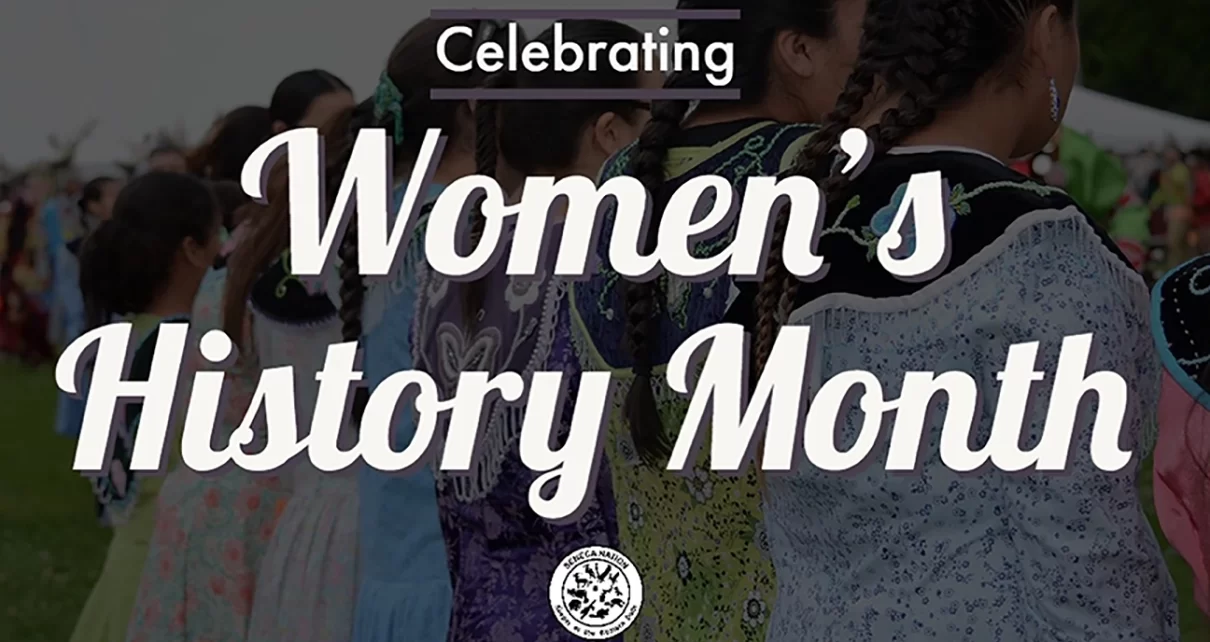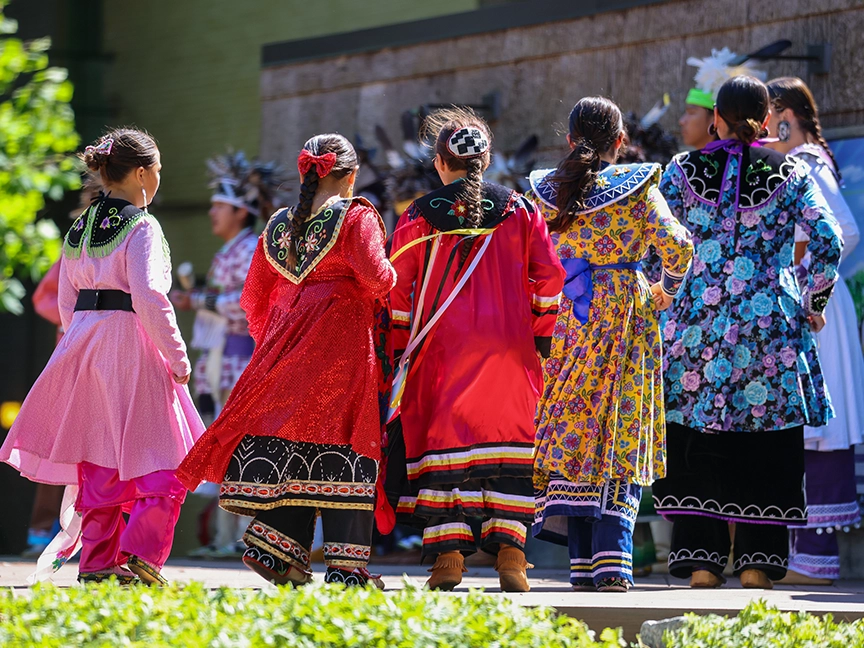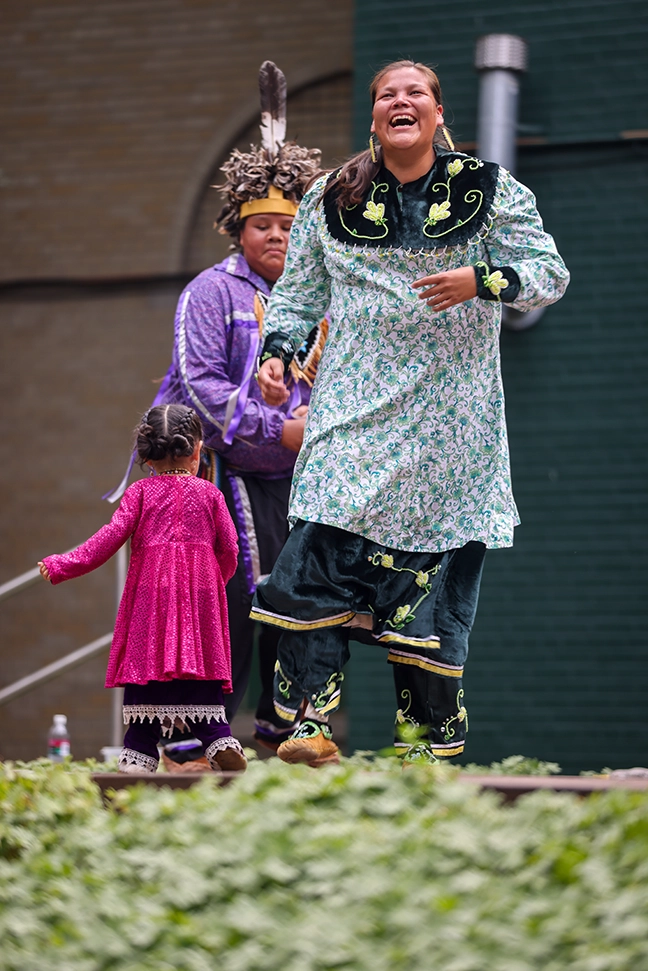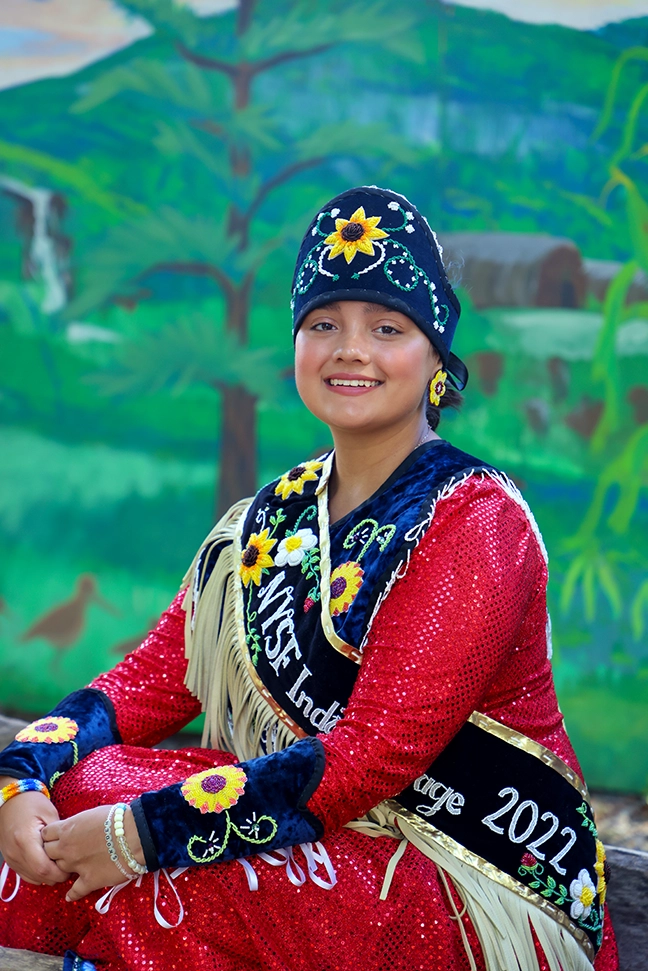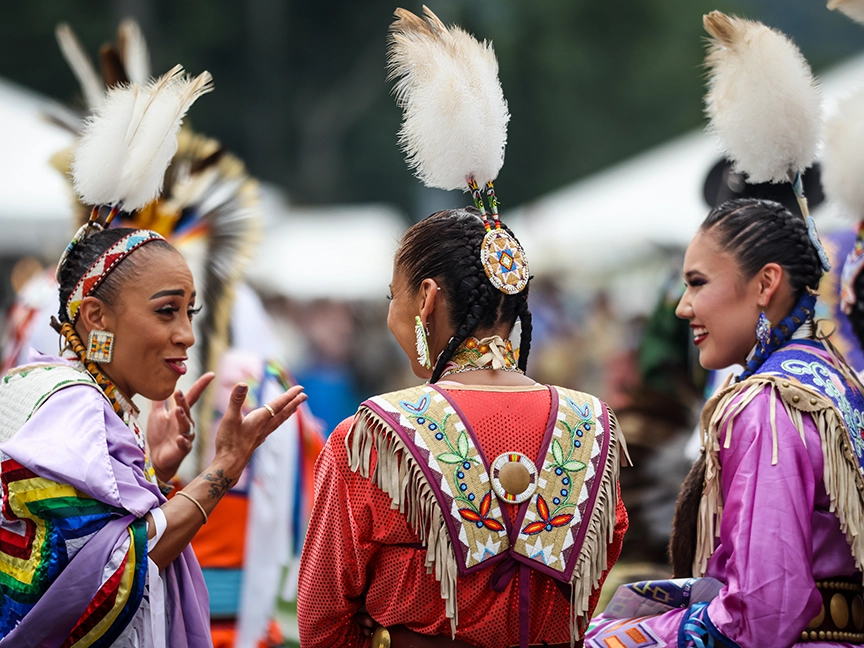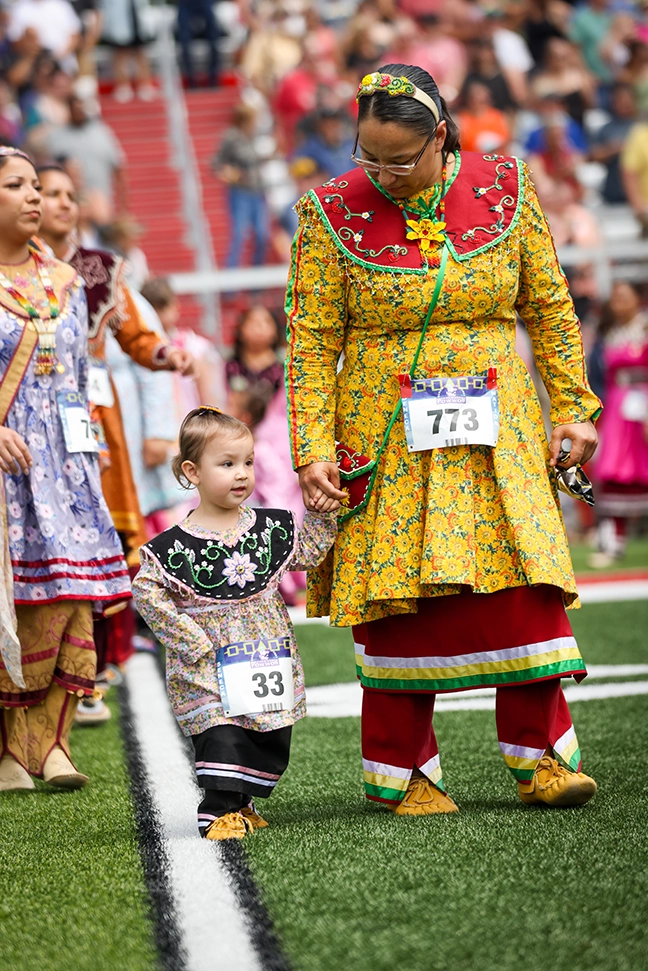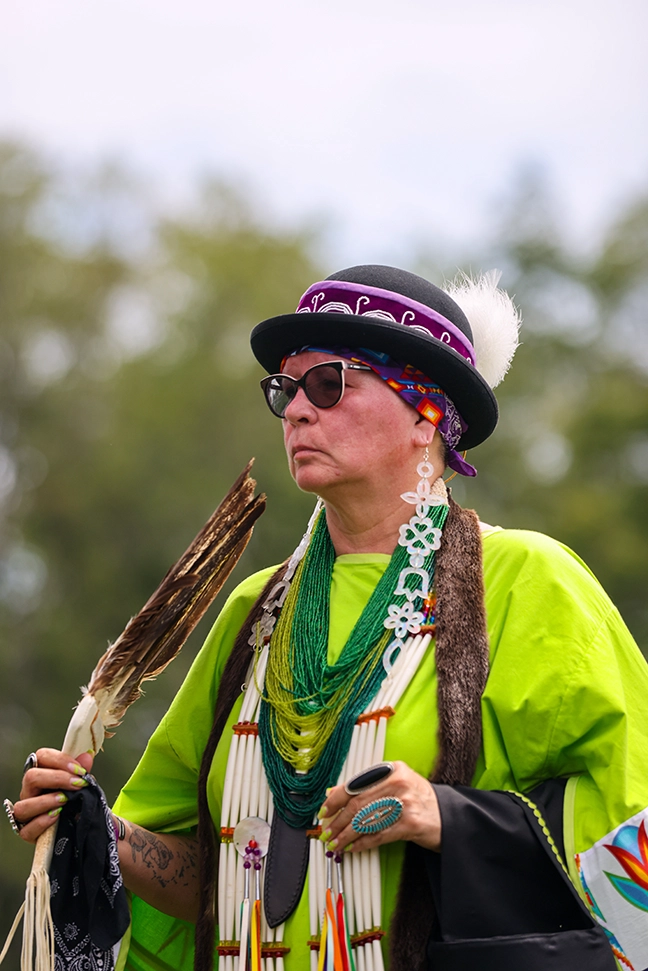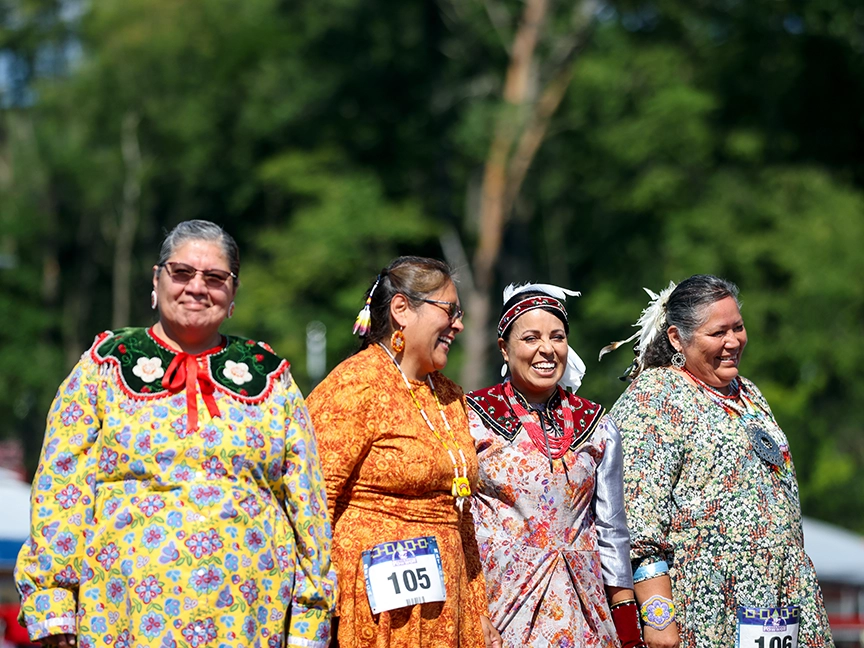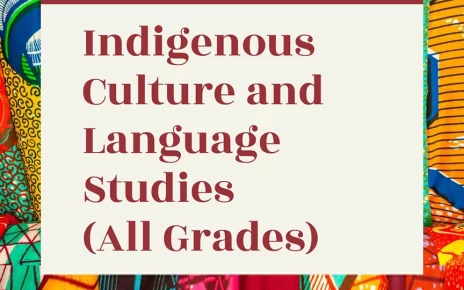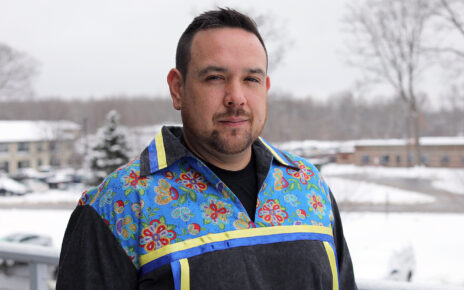Like many commemorative months celebrated annually, their roots are often unclear. Yet the first presidential proclamation of Women’s History Week was issued in 1980 by President Jimmy Carter. This proclamation evolved into Women’s History Month recognized from March 1 to March 31.
As Seneca people, we have known since time immemorial the invaluable contributions women have made in our culture and society. This month and every day, we celebrate our Onöndowa’ga:’ women and all they teach and provide. #WomensHistoryMonth #WomenAreSacred
Yanenowi Logan Gives Opening Address at NCAI
February 21, 2023 – National Museum of the American Indian, Washington, D.C.
Yanenowi “She Guards the Corn” Logan, Cattaraugus resident, Deer clan, gave the National Congress of American Indians (NCAI) State of the Native Nations Youth Address at the annual conference on February 21st at the Rasmuson Theater at the National Museum of the American Indian in Washington, D.C.
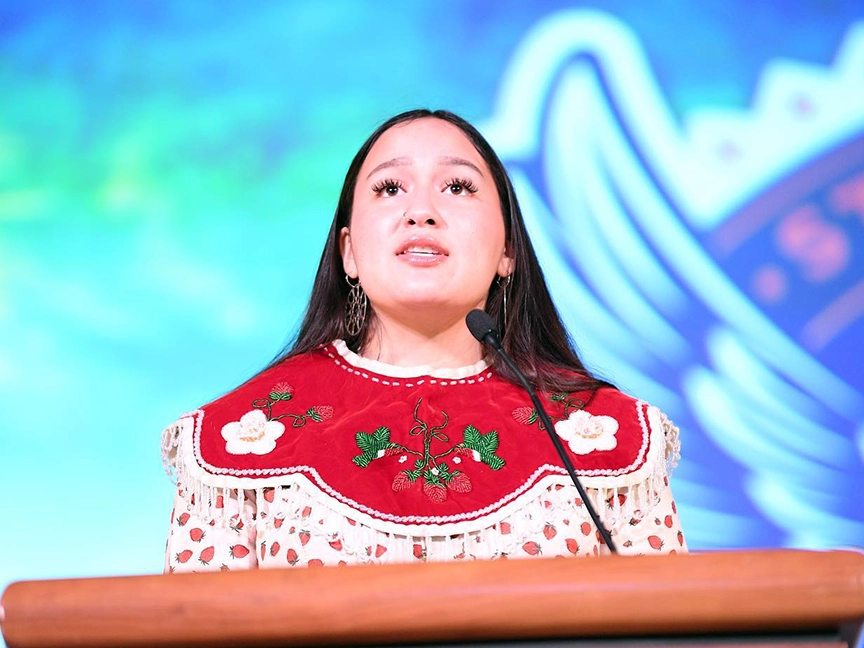
Ms. Logan gave an empowering speech that touched on the diverse topics Indigenous youth face including representation, decolonizing data and accurate statistics on MMIW cases. She currently shares the NCAI Youth Co-Presidency with Caleb Dash. Together, they addressed topics they intend to prioritize and support across Turtle Island.
Currently a junior at Cornell University’s College of Agriculture and Life Sciences studying Environment and Sustainability, Logan intends to focus on environmental issues of Indian Country and physical health. Yanenowi has been honored as the recipient of the Emerging Young Leader award by the WNY Peace Center. She is also the Co-chair of NAISAC, the Cornell University Native American Indigenous Students at Cornell student organization.
Her Opening Address:
Giving thanks is how we must begin our mornings, our meals, and our personal journey. I want to first thank and acknowledge the storytellers, changemakers, and leaders that came before us. Every joke, every worry, every sacrifice, and every dream that you lived built this moment and allowed for the youth to continue doing the work of the 7 generations. It was the stories from their communities, from their ancestors, and from their dreams that inspired the youth today to live with such passion and determination.
I want to share those stories with you today to recognize the individuals who are making strides for real impact, show the adverse journeys of research and reflection and bring forward the forcible issues of Indian Country today so that you too can support and uplift the youth and their priorities. Our communities in Indian Country are interconnected. We’re a vast and complicated web of stories and so our issues are intersectional too. As a part of our work on the youth commission we have the opportunity to curate opportunities for youth to use our platform to ;spotlight our research, to share our community’s history and contemporary state, to network and establish relationships with this nation’s most passionate and involved youth. In all of these spaces whether at the White House, at an NCAI conference or on the zoom interface or in our very own youth councils and schools, we have engaged with incoming generations of changemakers and storytellers. The journey for answers, knowledge and wisdom by the 7th Generation has arisen and established a fascinating transition into academia and community growth.
This work is upstanding and impactful for a multitude of reasons. First, while the research and climate spaces, domestic abuse cases, and native histories is underfunded and undervalued our youth are finding ways to engage and use their voices to ensure that this research is developing with accuracy and strength.
Second which goes hand in hand with my last point is that youth are increasingly aware of the importance of decolonizing data. Native researchers are providing their work with a truthful history and an accurate and transparent account for the landscape in every field and it makes a difference to us all.
And third, representation. We are influencing and inspiring more native youth to be leaders and to share their innovative ideas and personal stories that have never been included before. Last summer at the NCAI midyear conference in anchorage Alaska, the Youth Commission had the pleasure and great honor of hosting Charlene Aqpik Apok and Maka Monture Paki from Native Movement for our session called Decolonizing Data in Alaska. Data for Indigenous Justice is an Indigenous women led non-profit that reclaims missing and murdered Indigenous women and girls (MMIWG) data in Alaska. Within the United States in 2016 there were 5,712 reported MMIW cases but only 116 were logged into the DOJ’s database. Data for indigenous justice was formed to bridge the gaps in absent data, to conduct the research reflective of accurate data representation in Alaska and to work directly with our communities in decolonizing data. This session engaged youth and attendees on the practices of data reclamation, data systems advocacy, and healing centered community work. Our people are facing a violence that our young native women are collectively stepping up against and taking action for.
At the Whitehouse Tribal Youth Forum the youth commission got to hear from impactful native leaders and have the pleasure of engaging with youth like Charitie Ropati and Quannah Chasinghorse. Charitie Ropati (Yup’ik & Samoan) is a 21 year old education and environmental activist who worked to implement an accurate and inclusive sub-curriculum of Indigenous peoples in Western Pedagogy in Alaska. She is a researcher who studies the intersections of plant ecology, permafrost, and cultural resilience in coastal Native communities at Columbia University.
Quannah Chasinghorse (Hän Gwich’in and Sicangu-Oglala Lakota) used her platform to advance environmental activism and uplift indigenous movements around the world. Chasinghorse fights against drilling in Alaska and advocates for the permanent protection of the Arctic National Wildlife Refuge from drilling. These young women provide just a fraction of the hard work and trailblazing accomplishments in environmental stewardship that native youth are doing all across the country and the world.
Even on the most challenging issues of our time youth are making a difference. Former youth commissioner co-president Jessica Lambert saw through the need to educate and advocate for the youth by way of community engagement and media coverage. Jessica’s an enrolled citizen of the Choctaw Nation and a first-generation descendant of the Eastern Band of Cherokee Indians, and a recent graduate of Princeton University. Jessica, who’s no stranger to research and advocacy wrote an op-ed for the nation titled “This Supreme Court Case Threatens Tribal Lands”, to bring awareness to the issue of tribal sovereignty in the Indian Tribal Welfare Act or ICWA. She organized the youth called Youth Defending Youth to voice our support for ICWA while engaging hundreds of youth and Indian Country leaders and she organized an informational session to inform youth on the reality and impact of this issue. At the crux of this issue was youth banning together to protect one another and ensure the preservation of our communities.
And to bring it home I wanted to share the recent work I’ve been pursuing in looking at the repatriation of remains. My studies in environment sustainability in American Indian Studies at Cornell University. I researched and submitted a portfolio named “Bring Our Babies Home, a creative a generational testimonial to the Indian boarding school system. After diving into conversations about land relations, language, oral histories I found myself invited into stories from around the world trying to grasp the tragedy of residential schools and its intergenerational impact across Indian Country is an extremely complicated and overwhelming fee.
Rematriation, returning the sacred to the mother became a process to me by overcoming these traumas by nurturing the heart with art, words, and community. And this journey towards personal restitution or even just a critical centralization I looked at how many indigenous writers and storytellers explore healing. I wanted the words that I put out into the universe to be blatant, unapologetic and also mindful and imaginative in relation with the creator, just as it was intended.
These are just a small fraction of issues that the youth of Indian Country are taking a lead on. Our research and passion on these issues has advanced our need for a platform and that’s why we present you with Youth State of Indian Nations today. We ask that tribal leaders and supporters from around the country listen and embrace our stories, engage in action driven dialogue, and lend us the support and resources that we demand. We ask that you reflect on your responsibility to establish relationships with the youth here today and ask them what they need from you right now.
The youth of Indian Country are drafting a new narrative. The work and passion of our own young leaders is something to truly celebrate and to support in our communities. Although the hard work of protecting our land, our sisters, our babies, and all of our relatives isn’t yet finished I am confident in the incoming generation of storytellers, changemakers, leaders and to continue this path towards reciprocity towards rematriation and restitution. Nya:wëh

